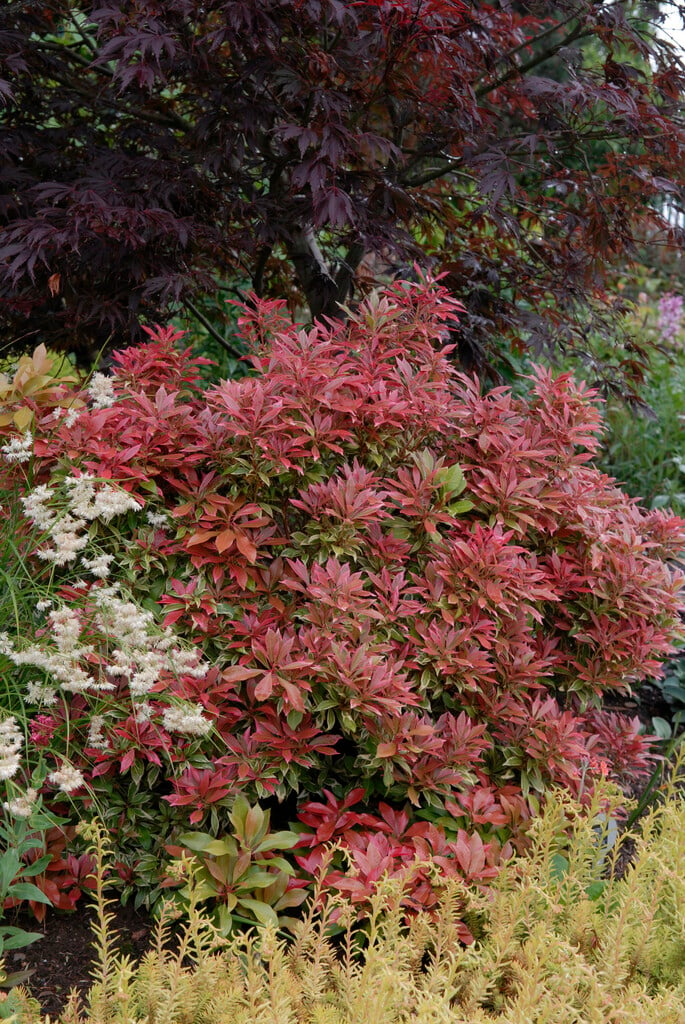Pieris japonica 'Carnaval' (v)

pieris 'Carnaval'
An upright, evergreen shrub with small, dark green leaves edged with creamy-white. New leaves are bright red in spring, with pink edges. Creamy-white flower buds are decorative in winter and open to sprays of small, clear white, urn-shaped flowers in spring
Size
Ultimate height
1–1.5 metresTime to ultimate height
10–20 yearsUltimate spread
0.5–1 metresGrowing conditions
Moisture
Moist but well–drained, Well–drainedpH
AcidColour & scent
| Stem | Flower | Foliage | Fruit | |
| Spring | White | Pink Red Green Variegated White | ||
|---|---|---|---|---|
| Summer | Green Variegated White | |||
| Autumn | Green Variegated White | |||
| Winter | Cream | Green Variegated White |
Position
- Full sun
- Partial shade
Aspect
South–facing or West–facing or East–facing
Exposure
Sheltered Hardiness
H5Botanical details
- Family
- Ericaceae
- Native to GB / Ireland
- No
- Foliage
- Evergreen
- Habit
- Bushy
- Potentially harmful
- Harmful if eaten. Wear gloves and other protective equipment when handling. Pets (dogs, cats, rabbits, rodents, tortoises): Harmful if eaten - For further information and contact numbers regarding pets, see the HTA guide to potentially harmful plants
- Genus
Pieris are compact evergreen shrubs with leathery, dark green leaves, often brightly coloured when young, and small white urn-shaped flowers borne in panicles in spring
- Name status
Accepted
How to grow
Cultivation
Grows well in acidic, moderately fertile, humus-rich soil but may need some protection in winter when young
Propagation
Propagate by softwood cuttings in early summer or semi-hardwood cuttings in late summer. Some bottom heat may be required
Suggested planting locations and garden types
- Cottage and informal garden
- City and courtyard gardens
- Wildlife gardens
- Low Maintenance
- Flower borders and beds
Pruning
Pests
May be susceptible to pieris lacebug
Diseases
May be susceptible to honey fungus (rarely), Phytophthora root rot, and fungal leaf spot
Love gardening
Sign up to receive regular gardening tips, inspiration, offers and more
View our Privacy Policy
Get involved
The Royal Horticultural Society is the UK’s leading gardening charity. We aim to enrich everyone’s life through plants, and make the UK a greener and more beautiful place.
